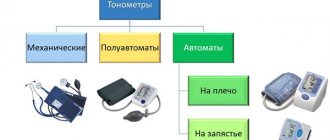Normally, labor begins 38 weeks after conception, but a full-term baby can be born at 36 or 42 weeks. The date of planned birth is counted in different ways: from the date of possible conception or from the first day of the last menstruation, so the gestation period may vary.
The first signs of labor may appear 2-3 weeks before the onset of labor. But it is better to go to the maternity hospital directly during regular true contractions with an interval of 5-7 minutes in order to avoid medical stimulation and give birth naturally.
What does a woman most often experience before giving birth?
- irritability, fear and anxiety, which is caused by hormonal changes in a woman’s body;
- nausea, loss of appetite or, conversely, increased appetite, vomiting, upset stomach, as well as weight loss of 1-2 kg, which can occur several weeks or days before birth and is associated with the functioning of the hormonal system;
- a slight increase in body temperature and chills very often accompany the onset of labor;
- pain in the lower abdomen, lower back or sacrum, which are pulling or spasmodic in nature and are provoked by displacement of the vertebrae in the sacrum and increased excitability of the nervous system;
- excitability of the uterus, which is manifested by increased sensitivity and tension of this organ, this happens periodically, first 1-2 times a week, then several times a day;
- false contractions are training contractions of the uterus that begin to bother a woman several weeks before giving birth and differ from true contractions in that they do not have a strict frequency and can be eliminated with the help of relaxing procedures, walking, and a warm bath;
- true contractions are regular, cramping pain that occurs before childbirth and is accompanied by dilatation of the cervix.
Signs of the onset of labor are also brown discharge from the genital tract and prolapse of the abdomen before childbirth.
Reasons for the development of a painful condition
Why can a woman’s blood pressure increase sharply in the last months of pregnancy? Doctors identify several reasons for this:
- frequent stress (worries about the upcoming birth, changes in normal life, conflict situations, family troubles);
- hereditary factor - if one of the parents suffered from hypertension, and the expectant mother had not previously complained of high blood pressure, it is during pregnancy that the disease can manifest itself in an acute form;
- smoking and drinking alcohol;
- too much weight of the fetus;
- polyhydramnios;
- kidney and thyroid diseases, hormonal imbalance in the body;
- excess weight.
Stress is not only psychological, when a woman is upset and depressed, but also physical. What does this mean? During gestation, the body, especially in the later stages, experiences enormous stress on the heart, blood vessels, kidneys and all internal organs. The heart muscle has to work for two, because an additional circle of blood circulation has appeared through the umbilical cord.
Due to the lack of compensatory capabilities of the body, the heart cannot cope with the increased volume of blood circulating through the arteries. To prevent tissue hypoxia, the organ is forced to increase blood pressure. As a result, the condition of the pregnant woman worsens. Bad habits and a sedentary lifestyle aggravate the situation.
If a pregnant woman smokes or drinks alcohol, the already narrowed blood vessels are subject to excessive stress. Oxygen starvation begins not only in the tissues of the heart muscle, but also affects the condition of the child, which is fraught with dangerous consequences.
The same applies to excess weight and a sedentary lifestyle. If a woman walks and moves a little, does not follow a diet and is overweight, the load on the heart increases significantly. The development of hypertension in such a situation is considered a predetermined outcome of events.
How does the plug come out before childbirth?
A few days before the onset of labor, a woman begins to experience discharge from the genital tract, reminiscent of the onset of menstrual bleeding. This is the release of mucus, which protected the uterus and the fetus in it from infection from the vagina.
The discharge of the mucus plug before childbirth can occur quickly, as if the plug had actually popped out (this is typical if the fetus is heavy), or it can flow out slowly over several days. This process signals the dilation of the cervix and the onset of labor.
Symptoms
The woman feels well, leads a normal lifestyle and does not even suspect that there is a problem. If high blood pressure is not detected in time and therapeutic measures are not taken, the consequences can be dire - this is harm to the health of the woman herself and the developing fetus.
In the early stages of pregnancy, the symptoms of hypertension are practically absent, and the consequences develop much later
You can recognize the onset of hypertension by the following signs:
- squeezing pain in the head;
- feeling as if there is pressure on the eyeballs, discomfort and pain when moving the eyes in any direction;
- blurry images in the eyes, flashing “spots” or black dots;
- dizziness, ringing in the ears;
- urge to nausea and vomiting;
- redness of the skin in the neck and décolleté, which can be diffuse or appear in the form of red spots.
The woman’s well-being sharply deteriorates, and headaches bring maximum discomfort, since taking medications during pregnancy is not allowed, and it is difficult to relieve them with other means. Also, many expectant mothers complain of pain in the chest on the right and in the abdominal area.
Bruises may appear on the body, swelling of the limbs may occur, which subsides overnight, but increases again during the day. If such symptoms are detected, the problem cannot be left without a solution. If the pressure rises to 140 and beyond, this condition is dangerous not only for the woman, but also for the child. You need to urgently contact a specialist to take emergency antihypertensive measures.
When does your stomach drop?
3-4 weeks before the planned date of birth, the pregnant woman’s belly seems to slide down, this happens gradually and slowly. At the same time, the stomach changes somewhat in shape and decreases in size.
As the abdomen lowers, it becomes easier for a woman to breathe and eat as the diaphragm is released.
When symptoms of impending labor appear, a woman should rest more and save her strength for the main period of pregnancy - the birth of the baby.
What blood pressure is considered normal during pregnancy?
Blood pressure, if a pregnant woman has it within the normal range, is the main indicator of health and the correct course of the gestation period. Every expectant mother should monitor these indicators daily using a tonometer, and the measurements must be made correctly so that the result is not distorted.
Doctors have established certain blood pressure limits for expectant mothers - indicators should not fall beyond 90/60 and exceed 140/90 mm Hg. During pregnancy, the functioning of all internal organs changes, and with increasing age and body weight of the fetus, the load increases more and more. The hormonal background changes, the body prepares for delivery, pumps double the volume of blood, as a result of which the pressure may increase slightly.
If the woman feels well and does not make any complaints to the doctor managing the pregnancy, and the systolic (upper) pressure does not rise above 130-140 mm Hg, there is nothing to worry about. Laboratory tests and ultrasound data should indicate the normal course of gestation and the harmonious development of the fetus.
In the first months of pregnancy, when the body is just adapting to pregnancy, the hormone progesterone is released, which suppresses uterine contractions and regulates muscle tone. As a result, the pressure drops to 100/70, and doctors do not consider such indicators pathological. As the fetus develops, the load on the body increases and the tonometer may produce inflated numbers. But again, if they are within normal limits and do not cause inconvenience to the woman, then these are individual characteristics of the body.
In the last trimester, many expectant mothers begin to complain to doctors about feeling unwell, swelling, weakness and headaches.
Specialists
Makatsaria Alexander Davidovich
Obstetrician-gynecologist, famous scientist, founder of clinical hemostasiology.
It will help you plan and maintain your pregnancy if you have had cases of fetal loss, thrombosis, obstetric complications or blood coagulation disorders. You can also contact your doctor for a transcript of hemostasis tests.
Egorova Elena Borisovna
Obstetrician-gynecologist of the highest qualification category.
Specializes in peritoneal factor of infertility in women and management of problematic pregnancies.
It will provide effective help if, before conception, you were diagnosed with adhesions, endometriosis, erosion or other pathologies of the cervix.
Akinshina Svetlana Vladimirovna
Obstetrician-gynecologist, hemostasiologist with an academic degree.
Pregnancy management S.V. Akinshina will help avoid severe complications: gestosis, placental insufficiency, fetal loss syndrome.
The doctor's expertise includes hemostasis disorders and immunological infertility.
Bitsadze Victoria Omarovna
Gynecologist-hemostasiologist, professor, doctor of medical sciences.
The doctor's profile is management of high-risk pregnancies, including in women with genetic thrombophilia and a tendency to spontaneous bleeding. Develops effective treatment regimens for infertility associated with autoimmune pathologies and hemostasis disorders.
Specifics of pressure surges during pregnancy
Often, an increase in blood pressure in the later stages is detected by chance, since the woman is in good health, does not complain or note any alarming symptoms. But the first increase in tonometer readings can be recorded at 20 weeks of pregnancy. If a woman has not experienced such problems before, and pressure surges occur regularly, they speak of pregnancy hypertension.
In most cases, the problem remains a thing of the past after a successful delivery, but sometimes the patient’s condition worsens sharply.
Classification of hypertension in pregnant women:
- Chronic arterial hypertension is diagnosed when a woman suffered from high blood pressure even before conception, and the symptoms of the pathology appeared immediately in the first half of gestation.
- Gestational hypertension is recorded indicators of high blood pressure from 20 weeks onwards, while there are no changes in laboratory urine tests, and the protein level does not increase (proteinuria is not diagnosed).
- Preeclampsia and eclampsia are dangerous conditions for a pregnant woman, which also appear in the second half of the term, but are accompanied by additional clinical symptoms.
Preeclampsia in pregnant women is a fairly common diagnosis given to expectant mothers in the later stages; it is popularly called late toxicosis. This is a complication, during the development of which a pregnant woman should be under the supervision of doctors and preferably in a hospital setting. Preeclampsia is a metabolic failure in the body, as a result of which the properties of the blood change, the walls of blood vessels are affected and signs of degeneration of the tissues of internal organs are noted.
Doctors explain to women that the cause of the development of gestosis is a malfunction in the body’s immune system, when tissue incompatibility occurs at the cellular level
As a result, metabolic processes in the tissues and vessels of the placenta, which are very important for the proper development of the fetus and gestation, do not occur. It turns out that gestosis initially starts in the early stages of pregnancy, and the definition of “late toxicosis” is not suitable for it.
Why does blood pressure rise in the evening?
Signs of gestosis:
- increased blood pressure - doctors advise pregnant women to calculate acceptable blood pressure readings using a special formula. To do this, the upper indicator is added to the lower one, multiplied by two, and then the resulting number is divided by three. If the number is within 100 mm Hg, there is no need to worry, the number above indicates gestosis;
- intense swelling - many women believe that swelling is one of the natural accompanying signs of pregnancy and do not consult a doctor. Although swelling of the extremities indicates increased blood pressure and poor-quality outflow of fluid retained in the body. Consultation with a specialist for developing gestosis is simply necessary;
- an increased amount of protein in the urine, recorded by laboratory tests - if the first two symptoms (pressure surges and swelling) are absent, then gestosis can be determined only by this factor.
The mildest form of gestosis is dropsy, which is expressed by increased swelling. But, if treatment is not taken, the daily urine output decreases, blood pressure increases, and the risk of developing preeclampsia and eclampsia increases. And these conditions are considered dangerous for the pregnant woman and the fetus.
Preeclampsia
This condition is a consequence of gestosis, left without the attention of doctors. Nephropathy, a condition in which increased protein in the urine is accompanied by edema, is a stage before the development of preeclampsia. In addition to the listed characteristics, preeclampsia is manifested by circulatory disorders in the capillaries located in the tissues of the brain.
As a result of swelling of the meninges, the pregnant woman experiences increased weakness, she feels exhausted, drowsy and tired. Constant nausea ends with vomiting, then the condition may change to unexpected euphoria. The reaction to external stimuli (bright light, loud sounds) increases or, conversely, decreases. There are disturbances in visual function - there may be double vision in front of the eyes, black dots and spots flash, the picture merges.
Eclampsia
The most severe stage, which follows preeclampsia, occurs against the background of disruption of most systems in the body. As a result of multiple organ failure, the expectant mother's vision deteriorates greatly, twitching of the eyelids and facial muscles is noted, and convulsions appear. The body can respond to this condition by developing mental disorders.
Convulsions can begin after exposure to a strong external stimulus - turning on a light in the dark, a loud sound, or even a slight sensation of pain. Convulsions can be isolated or occur in the form of seizures, during which the woman loses consciousness. After an attack, many pregnant women do not remember anything, and do not immediately return to consciousness.
The consequences of eclampsia are severe - kidney and liver failure, pathological circulatory disorders in the brain, cardiac arrest and respiratory function. Therefore, a woman with symptoms of eclampsia is urgently hospitalized for emergency care.
How to reduce indicators
Everyone knows that it is undesirable to take any medications during pregnancy due to the negative effects of the active substances on the fetus. However, high blood pressure, especially if it is in critical ranges, forces doctors to prescribe antihypertensive drugs to reduce the levels to normal.
If the condition is not critical, but requires medication, they should be selected exclusively by the attending physician
Severe cases of hypertension, which can be complicated by gestosis, preeclampsia and eclampsia, must be treated in an inpatient setting, where medical staff will monitor the condition of the pregnant woman around the clock. At the same time, the specialist must be confident that the expected benefit to the pregnant woman’s body will be higher than the risk of side effects to the fetus.
While taking antihypertensive drugs, a woman should regularly monitor her blood pressure level using a tonometer - morning and evening, and if her condition worsens, inform her doctor.
Available Treatments
If the tonometer readings do not reach critical levels, a pregnant woman can use some popular and effective ways to eliminate hypertension at home:
- Cranberry juice. The drink has diuretic properties, eliminates swelling, strengthens capillary walls and eases the load on the heart, as a result of which blood pressure stabilizes. To prepare, wash 1/3 cup of berries, squeeze out the juice, use only the cake. It is poured with boiling water in a volume of 250 ml and boiled for a couple of minutes. After cooling, you need to strain the mixture and pour in the remaining juice from the extraction; you can add a little honey, but not sugar.
- Juices with hypotensive effects from vegetables. Carrots and beets have good healing properties for hypertension; the juices of these vegetables clean blood vessels, increase their elasticity, increase the lumen of arteries and normalize the well-being of a pregnant woman. The juices squeezed from carrots and beets are mixed, then a little water is added so that the composition is not heavy on the stomach. Drink half a glass freshly prepared twice a day.
- Infusion of viburnum berries. Two tablespoons of fruit are infused in a glass of boiling water for 20 minutes, then after cooling, drink a glass of this composition daily.
- Fresh pumpkin decoction. 200 gr. cut the vegetables into cubes and boil in water until the pumpkin becomes soft and boiled. After this, put it on a sieve, cool, add a little honey. The decoction is consumed in the mornings and evenings to normalize blood pressure.
- Decoction of corn grits. The cereal is poured with a glass of warm water, having first crushed it in a coffee grinder, then left to infuse for 24 hours, shaking the composition periodically. Take 2 tablespoons of decoction before meals.
Such recipes are safe for mother and child, but allow you to stabilize high blood pressure. If the attending physician believes that the pregnant woman’s condition is generally normal and allows her to be treated at home with folk remedies, then there is no need to be afraid and use the listed decoctions daily.
Diet food
A woman prone to high blood pressure is prohibited from consuming chocolate, strong tea and coffee, and should also limit the amount of table salt or avoid it altogether. You should drink 1.5-2 liters of clean water daily to maintain normal kidney function and water balance in the body. It is better to replace meat with fish, as it thickens the blood and increases blood pressure.
What foods and drinks are useful for pregnant women with early stages of hypertension:
- beets, carrots, pumpkin, cabbage and freshly squeezed juices of these vegetables;
- hibiscus, tea with lemon, mint, lemon balm;
- freshly squeezed juices of orange, grapefruit, lemon (consumed diluted in water with the addition of honey);
- sour berries - cranberry, lingonberry, stone fruit.
You should not get carried away with baking, sweets, carbonated drinks - they contribute to poor digestion and weight gain. Eating for two is not at all necessary for the child to receive the nutrients he needs for development. On the contrary, rapid weight gain aggravates the load on the heart and leads to exacerbation of chronic diseases, including hypertension.
If there are problems with blood pressure, a pregnant woman should be regularly monitored by a cardiologist, neurologist, psychologist and other specialists, depending on the cause of hypertension. It is necessary to avoid the slightest stressful situations, move more, walk in the fresh air and eat right. If you feel well, yoga and fitness classes for pregnant women are suitable for preventing pressure surges.










